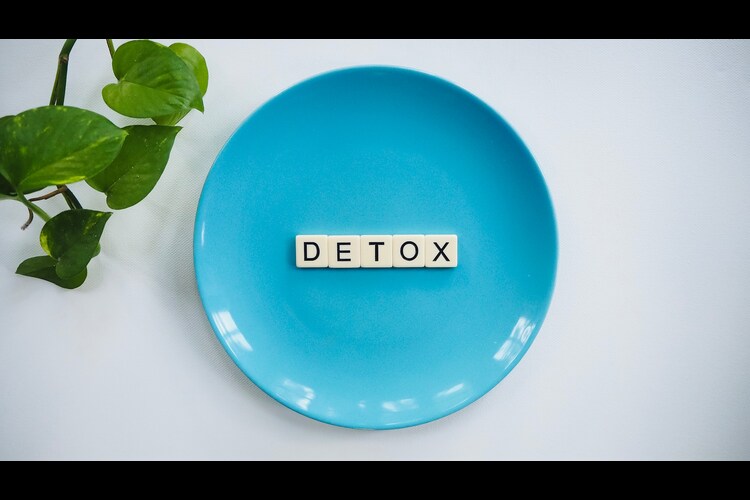Detox for Smokers: Nurturing Your Body’s Renewal After Quitting

Quitting smoking is a monumental step towards better health, and congratulations are in order if you’ve taken this significant stride. Smoking exposes your body to an array of harmful toxins and chemicals, which can lead to various health issues. As you embark on this journey to a smoke-free life, you might wonder about the process of detoxifying your body. In this comprehensive guide, we’ll delve into the concept of detox for smokers, exploring how your body naturally cleanses itself, the benefits of quitting smoking, and practical detox strategies to aid your journey.
The Body’s Natural Detoxification Process
Our bodies possess remarkable natural detoxification mechanisms designed to eliminate harmful substances. Organs like the liver and kidneys work tirelessly to filter toxins from the bloodstream and excrete them through urine and sweat. When it comes to smoking, these organs are under substantial stress due to the influx of toxic chemicals, including nicotine, carbon monoxide, and tar.
Once you quit smoking, your body begins its detoxification process immediately. Within hours, carbon monoxide levels in your blood decrease, allowing more oxygen to circulate. Over days and weeks, your lung function improves as they start to clear mucus and repair cilia—the tiny hair-like structures that help keep airways clear.
Benefits of Quitting Smoking
The decision to quit smoking is laden with a multitude of health benefits, many of which contribute to your body’s detoxification process:
Improved Lung Function: Your lungs are designed to clean themselves, and quitting smoking allows them to do their job more effectively. As the cilia regain their function, they sweep out mucus and debris, leading to clearer airways.
Reduced Inflammation: Smoking causes chronic inflammation in the body. Quitting smoking helps reduce this inflammation, aiding the body’s overall healing and detoxification process.
Enhanced Blood Circulation: Nicotine constricts blood vessels, impeding proper circulation. As you quit smoking, blood vessels gradually relax, leading to improved blood flow and oxygen delivery to cells and tissues.
Lowered Toxic Load: With no new influx of toxins from smoking, your body’s detoxification organs can focus on eliminating the residual toxins that accumulated over time.
Cellular Repair and Renewal: Smoking damages cells and DNA. Quitting smoking allows your body to initiate repair processes at the cellular level, promoting regeneration and reducing the risk of cancer.
Detox Strategies for Smokers
While the body’s natural detoxification processes are remarkable, there are strategies you can adopt to support and expedite the detox process after quitting smoking:
Hydration: Water is essential for flushing out toxins through urine and sweat. Stay well-hydrated to assist your kidneys and skin in eliminating toxins effectively.
Nutrient-Rich Diet: Consume a diet rich in antioxidants, vitamins, and minerals. These nutrients help neutralize free radicals and support the body’s detoxification pathways. Include plenty of fruits, vegetables, whole grains, lean proteins, and healthy fats in your meals.
Herbal Teas: Certain herbal teas, like green tea and dandelion tea, are believed to support liver health and detoxification. Their natural compounds can aid in flushing out toxins.
Physical Activity: Exercise stimulates blood flow, promotes sweating, and supports overall detoxification. Engage in regular physical activity to assist your body in eliminating toxins through sweat and improved circulation.
Sauna or Steam Bath: Saunas and steam baths induce sweating, which helps release toxins through the skin. However, consult your healthcare provider before using these methods, especially if you have any underlying health conditions.
Deep Breathing and Meditation: Deep breathing exercises and meditation help reduce stress, which can aid the body’s natural detoxification processes. Stress management is crucial for overall wellness.
Adequate Sleep: Sleep is when your body performs many vital repair and detoxification processes. Aim for 7-9 hours of quality sleep each night to support your body’s healing journey.
Limit Processed Foods and Alcohol: Processed foods and excessive alcohol consumption can burden the liver and hinder its detoxification functions. Minimize their intake for optimal results.
Conclusion
Quitting smoking is an investment in your health that pays dividends for years to come. While the body possesses its own remarkable detoxification mechanisms, adopting supportive strategies can accelerate the process and enhance your overall well-being. Embrace hydration, nutrient-rich foods, herbal teas, physical activity, relaxation techniques, and ample sleep as your allies in the detox journey.
Remember that every individual’s detoxification process is unique, and patience is key. Celebrate each step forward, whether it’s experiencing improved lung function, heightened energy levels, or a clearer complexion. As you transition to a smoke-free life, you’re giving your body the chance to renew, rejuvenate, and thrive—a decision that will undoubtedly lead to a healthier and happier you.



































